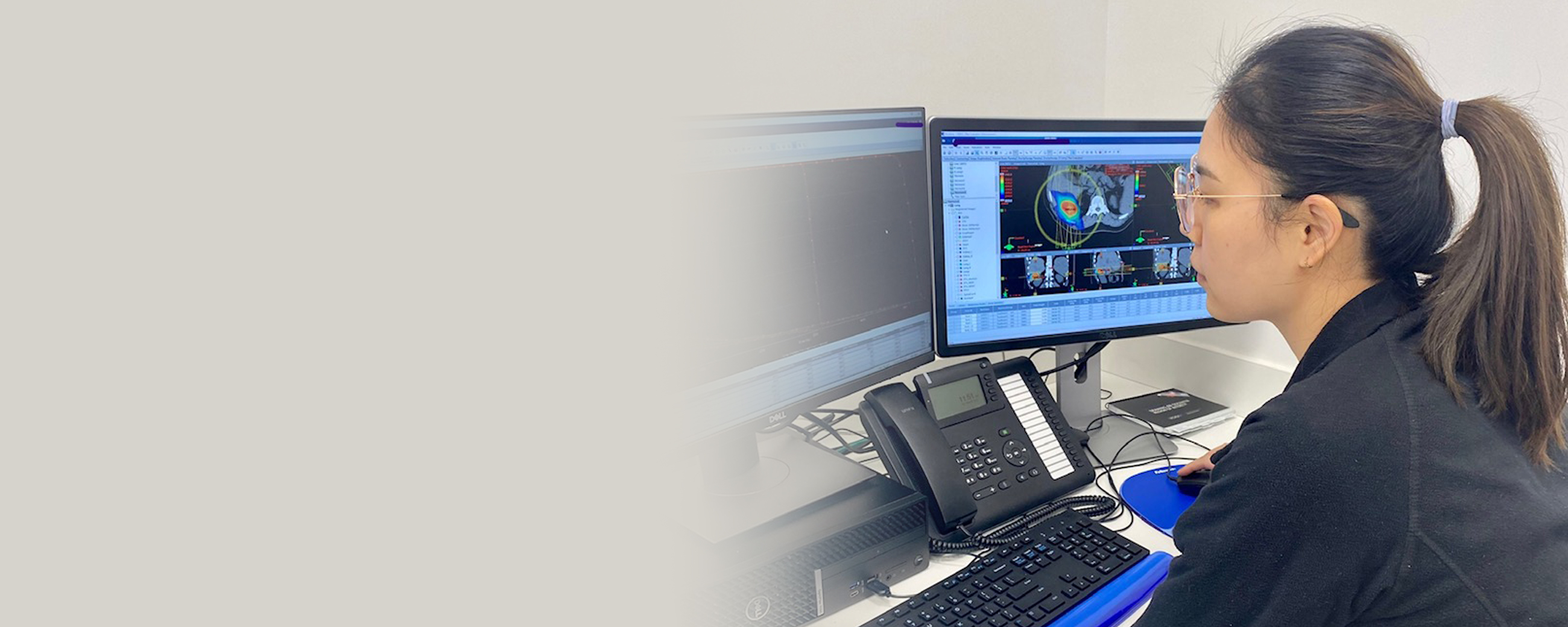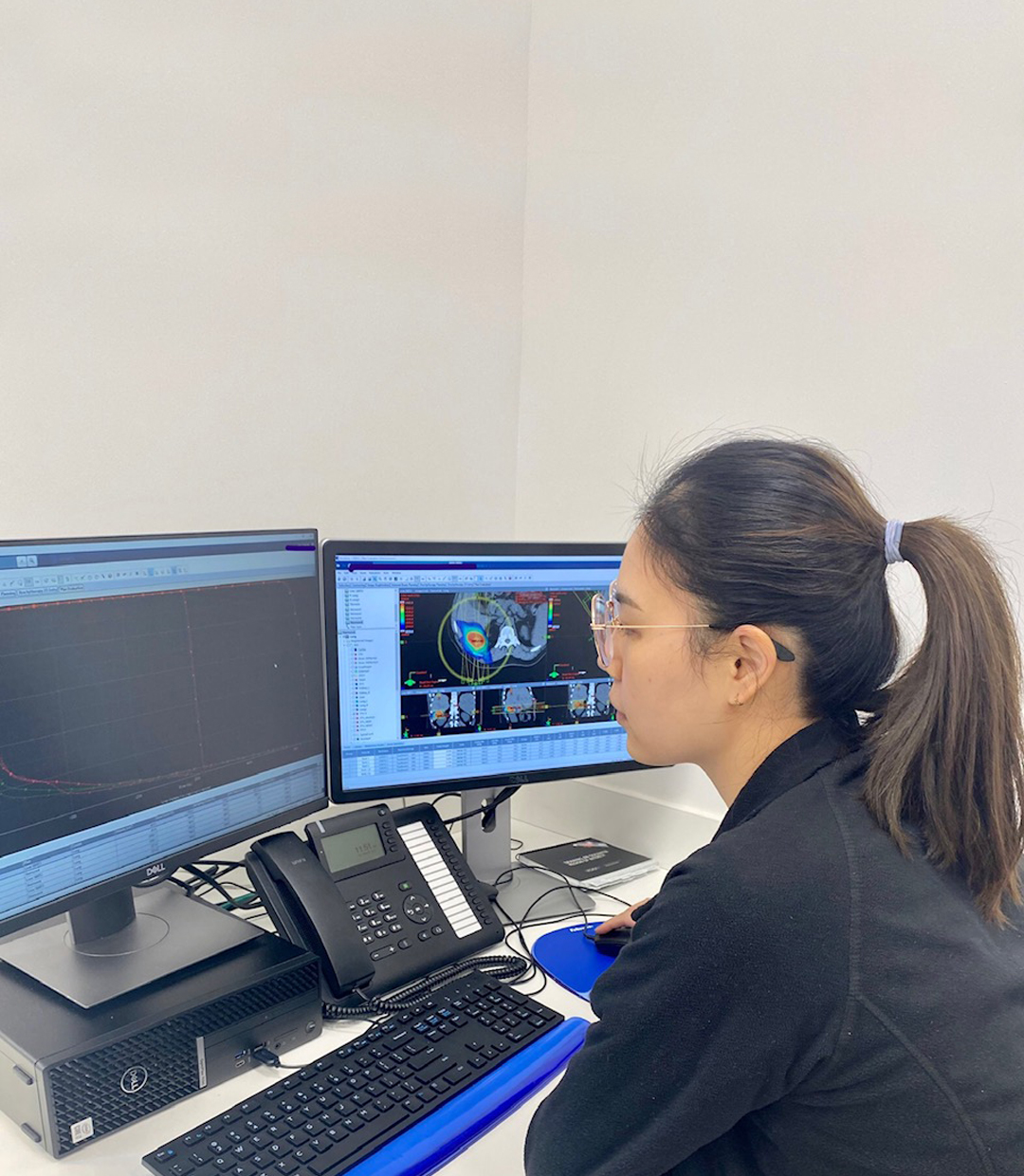Medical Dosimetry | |||||||||||||||||
| Admission Requirements | Curriculum | Technical Standards | Program Effectiveness Data | ||||||||||||||
| Student Handbook | Brochure | ||||||||||||||||
The Mount Sinai Center for Radiation Sciences Education at Stony Brook University is a partnership between Mount Sinai Health System's Department of Radiation Oncology and the School of Health Professions. The Medical Dosimetry clinical concentration was developed to educate and prepare students to meet the daily challenges of a dosimetrist in the dynamic field of Radiation Oncology and meet the growing demand for dosimetrists nationwide. A medical dosimetrist is a key member of the radiation oncology team. Medical dosimetrists have the education and expertise necessary to generate radiation dose distributions and dose calculations for cancer patients in collaboration with the medical physicist and the radiation oncologist. After completion of the didactic lessons in this clinical concentration, students continue on to the clinical non-credit, non-degree certificate program. The 12-months of clinical rotations in the medical dosimetry clinical non-credit, non-degree certificate program are conducted at the Mount Sinai Health System. Successful completion of both the concentration and the clinical non-credit, non-degree certificate program are required in order to be eligible to take the national registry examination. Since this is a program within the Health Science major, applications for the program are only accepted from students who have been advanced to the major's senior year curriculum.
Mission Statement: The Mission of the Medical Dosimetry Program is to optimize the knowledge, attitudes and skills of our students by maximizing their potential and introspection while enabling them to heighten their critical thinking in an effort to meet the daily challenges of a Medical Dosimetrist in the dynamic field of Radiation Oncology. Through clinical work and didactic lessons students will hone their skills that are required to serve our patients in the community while maintaining ethical standards and professionalism in and out of the clinic. They will become an integral part of the health care team in the battle against cancer. Program Goals: Goal 1: Students will demonstrate clinical competence. Student Learning Outcomes:
Goal 2: Students will practice critical thinking skills. Student Learning Outcomes:
Goal 3: Students will practice with professional values. Student Learning Outcomes:
Goal 4: Students will display effective communications skills. Student Learning Outcomes:
Accreditation The Medical Dosimetry Program is accredited by the Joint Review Committee on Education in Radiologic Technology, 20 North Wacker Drive, Suite 2850, Chicago, IL 60606-3182; 312-704-5300 Email: mail@jrcert.org The program's current accreditation award is 8 years. General program accreditation information and the current accreditation award letter can be found on the JRCERT website. The most recent award letter can be found on the School of Health Profession's website. Cost Tuition for the first year of the program can be found on Stony Brook's Tuition & Costs Website. Tuition for the second year of the program, the non-credit clinical certificate, can be found on Stony Brook's Student Financial Services website. Other Non-credit Certificate Program and Professional Estimated Required Expenses*
* Note: There will be transportation expenses (vehicle, parking fees, fuel, etc.) Health Insurance (required): Students can purchase the university plan or show proof of private insurance | |||||||||||||||||



